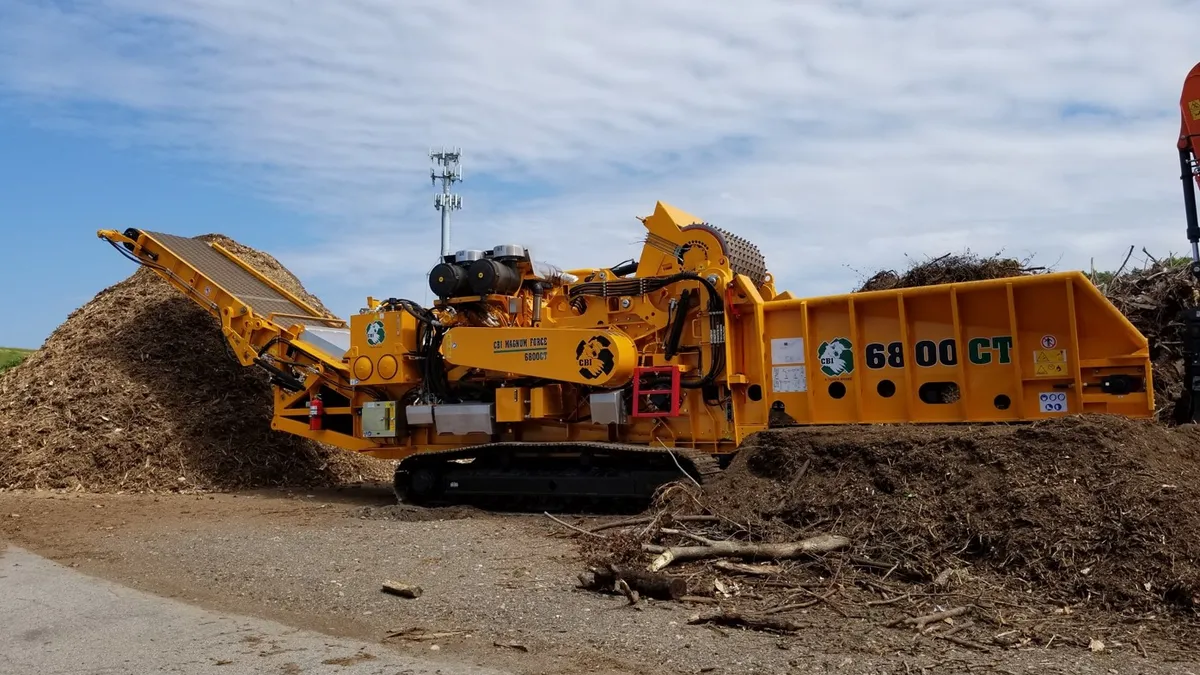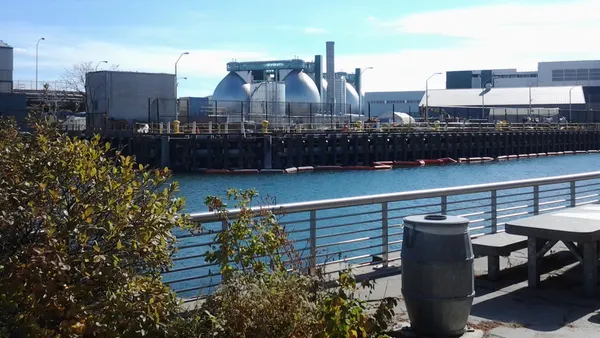Dive Brief:
- The Southeastern Connecticut Regional Resources Recovery Authority is planning to choose a vendor next month for a planned composting facility at its Preston property, according to Executive Director Dave Aldridge. The authority has described the project as the first commercial-scale compost facility in its area.
- The authority previously received a $400,000 funding agreement from the U.S. Department of Agriculture to pilot a compost program last year. Following the pilot’s success, the authority put out a request for qualifications for a permanent facility in October.
- The permanent facility will be located adjacent to an existing thermomechanical treatment facility run by Reworld on land owned by SCRRRA. Reworld has publicly explored building a new facility there, but those plans are still preliminary, Aldridge said.
Dive Insight:
The project is driven in part by state policies supporting organics infrastructure, a means of navigating falling disposal capacity in the Northeast as facilities like the Materials Innovation and Recycling Authority’s refuse-derived fuel facility in Hartford shut down in recent years.
In 2011, Connecticut became one of the first states to mandate a food scraps recycling policy for certain large-scale waste generators. It has updated those requirements a few times since, but progress has stalled for residential food waste.
In 2023, Connecticut Gov. Ned Lamont signed a bill into law that created organics separation programs for institutional facilities like schools and hospitals to help address the state’s lack of disposal capacity. The bill originally had a provision requiring municipalities to provide food scrap separation and collection by 2028, but it was axed from the final law.
Several Connecticut municipalities have also begun experimenting with food waste diversion programs to reduce their waste tonnages, supported in some cases by the state Department of Energy & Environmental Protection. Some, like Middletown, have tried co-collection services for residents to separate food waste at the curb, though those programs can run into opposition from residents.
SCRRRA has been exploring organics recycling projects since at least 2021, when it ran a large-scale composting pilot at its Stonington transfer station. Blue Earth Compost assisted with that project.
The authority’s work to complete a large-scale composting project at its Preston site began in earnest a year ago, when SCRRRA received the USDA funding. Since then, SCRRRA has completed the pilot successfully and put out its RFQ for potential vendors to build and operate a compost operation at the site.
SCRRRA received four bids for the project. They came from Connecticut hauler CWPM; a WeCare-Denali subsidiary; Black Earth Compost; and a consortium of Quantum Biopower, Supreme Industries and Blue Earth Compost, according to Aldridge. The authority will likely vote on a vendor at a meeting in mid-February, Aldridge said.
The authority has already secured the necessary municipal zoning approval for a composting facility, but it is still waiting on a permit from the Connecticut DEEP. That permitting process began last year and required SCRRRA to hold community meetings due to Preston’s former status as an environmental justice community.
Initial plans for the compost site are for it to be able to process up to 7,500 tons of food scraps annually, according to Aldridge. The authority envisions a hybrid system that uses aerated static pile processing and windrows to create finished compost.
"If we were to achieve that, which would be outrageously good, there are other plans that we could expand," Aldridge said.
Other nearby towns have also begun facilitating food scrap collection. In Ledyard, Blue Earth Compost set up food scrap collection bins for a pilot hauling collected material to Quantum Biopower’s anaerobic digestion facility. At least five municipalities that are part of the authority have leaf composting services as well, according to data from Connecticut DEEP.










